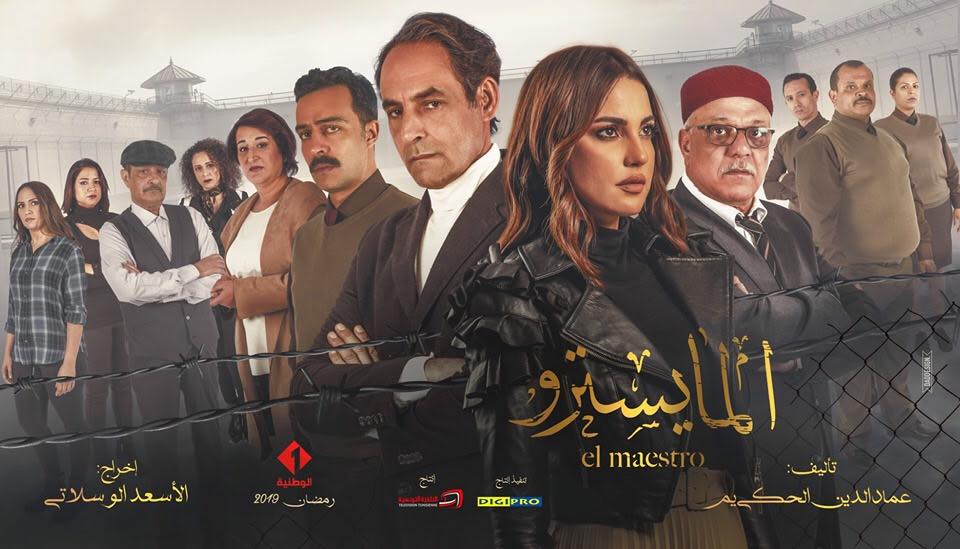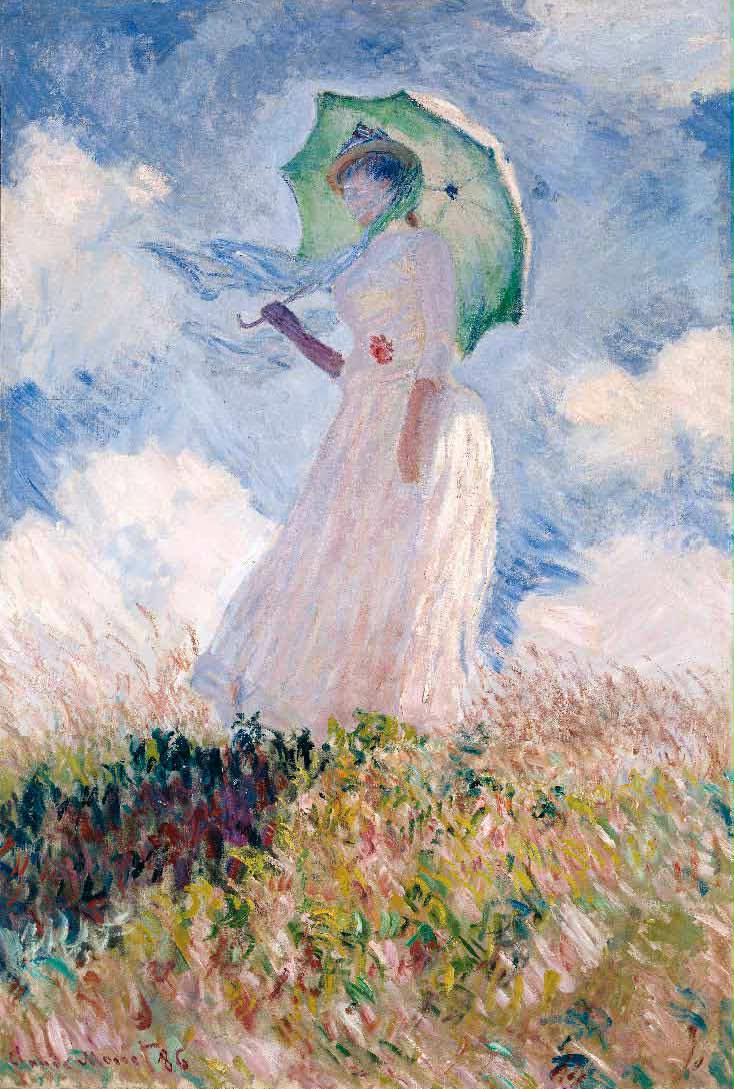منذ تداول الإعلان الترويجي لـ »المايسترو » على وسائل الإعلام ووسائل التواصل الاجتماعي، حاز المسلسل على انتباه الرأي العام وجعل المشاهد التونسي يتوق إلى رؤية العمل خلال شهر رمضان وكله أمل ألا يجر أذيال الخيبة ككل سنة (باستثناء مسلسل « تاج الحاضرة » و « جنون القايلة » حسب رأيي الشخصي). وبالفعل كانت الحلقات الأولى للمسلسل في مستوى التوقعات، أو ربما قد تجاوزتها، نظرا لمظاهر التجديد التي أدخلها العمل على الدراما التونسية.
« المايسترو » عمل درامي لكاتب السيناريو عماد الدين الحكيم والمخرج الأسعد الوسلاتي، جمع ثلة من أبرز الممثلين التونسيين مثل درة زروق، أحمد الحفيان، فتحي الهداوي، وجيهة الجندوبي، غانم الزرلي، شاكرة رماح و غيرهم، إلى جانب وجوه شابة مبدعة مثل سناء الحبيب، مالك بن سعد، نذير بواب ونور القمر.
تدور أحداث المسلسل (وهي مبنية على أحداث قصة حقيقية عاشها الفنان رياض الفهري بين 1993 و 1999) حول الموسيقي « حاتم » (أحمد الحفيان) الذي يجد نفسه عاطلا عن العمل بعد إغلاق مكان عمله و تفكك فرقته الموسيقية. ثم تشاء الأقدار أن يعمل مدرسا للموسيقى بإحدى الإصلاحيات، حيث يلتقي الطبيبة النفسية « رقية » (درة زروق) وتبدأ رحلته من هناك مع المساجين الشبان من جهة ومسيّري الإصلاحية من جهة أخرى. عمل متميز أداء وتصويرا وإخراجا وسيناريو، إلى جانب موسيقى المسلسل للفنان رياض الفهري وخاصة مقطوعة الجينيريك.
لم أكن طيلة السنوات الفارطة متابعة وفية للدراما التونسية، لا لرداءة الأعمال، بل لسبب آخر قد لا يتبادر لأذهانكم أعزائي القراء.
لا بد أنكم لاحظتم اجتياح موضة « كشف المستور » لسيناريوهات الدراما التونسية في السنوات التي تلت الثورة، والتي كانت أغلبها تدور حول إشكال الفساد المالي والسياسي والاجتماعي وتهدف إلى كشف الخور للمشاهد التونسي. وقد اعتبرها أغلب الناس على اختلاف خلفياتهم الفكرية والثقافية والأكاديمية طريقة لـ »معالجة الواقع »، إلا أنها (حسب رأيي الشخصي) لم تساهم بشكل فعال في « معالجة » المشاكل المطروحة في هذه الأعمال، لأنها وبكل بساطة تطرح المشكل دون دراسة معمقة ودون تقديم للحلول.
وعلى عكس هذه الأعمال، يسلط مسلسل « المايسترو » الضوء على المشكل من منظور آخر، فيعري نفسية الشخصيات وما يختلج بداخلها من أفكار وأحاسيس ويركز على دوافعها السيكولوجية عند اتخاذ القرارات. كما نجد في هذا العمل تجاوزا للتصنيف الكلاسيكي للشخصيات بين خيّرة وشرّيرة، ليكتشف المشاهد في كل موقف جانبا آخر لكل شخصية، فتارة يعاتبها وتارة يتعاطف معها.
من مظاهر التجديد أيضا في « المايسترو » الإطاحة بفكرة « النظام غير القابل للتغيير »، وقد جسد أحمد الحفيان ذلك في دور « حاتم التونسي » من خلال مواجهاته المتتالية مع إدارة الإصلاحية المتمثلة في شخصيتي « يونس » (غانم الزرلي) و « عباس » (فتحي الهداوي)، والتي كللت بالنجاح في النهاية. نجد أيضا دور « رقية » (درة زروق) التي حاولت من جهتها كمعالجة نفسية مواجهة النظام ومساعدة كل من الأطفال وعائلاتهم فلم توفق بنفس القدر، إلا أنه كان لها دور في نجاح « حاتم » في تغيير عقلية كل من الإداريين والمساجين الشبان.
كما نجد أن هذا العمل يعطي شخصية الطفل قدرها من الإهتمام ويبرزها كطرف فاعل في سيرورة الأحداث وبناء الحبكة القصصية، على عكس جل الأعمال التونسية السابقة اللتي تبرز الطفل كطرف ثانوي متواجد على هامش الأحداث. لقد صور المسلسل جميع تفاصيل شخصية أطفال الإصلاحية، مبرزا قدرتهم على اتخاذ قرارات سليمة والتطوير من أنفسهم عند توفر الإحاطة اللازمة، واتباع طريقة تعامل غير تقليدية لا تتسم بالقسوة والعنف.
وذلك ما سعت إليه شخصية « حاتم » في المسلسل، فقد كانت قدوة ومثلا أعلى للمساجين الشبان ومصدر إلهامهم، وكانت الموسيقى فرصة لهم لاكتساب الثقة بأنفسهم وسببا للتشبث بالحياة. كما ساعدتهم أيضا على تهذيب أنفسهم والتخلص من الشوائب المترسبة في عقولهم وأفئدتهم من إحساس بالظلم والحقد والغضب، والرغبة في التعبير عنها بأساليب غير سليمة و عنيفة.
وأخيرا، لا بد من الإشارة إلى التباين الملحوظ في موقف التونسيين من هذا العمل من مواطنين عاديين أو أسماء من الوسط الفني أو حتى إدارة السجون التونسية. فمن جهة يشير الممثل و المسرحي الصادق حلواس في حوار له على موجات إذاعة IFM إلى أن المسلسل « خرّج الإصلاحية أنظف من الشارع » على حد تعبيره. و من جهة أخرى يؤكد سفيان مزغيش الناطق الرسمي باسم الإدارة العامة للسجون والإصلاح في حوار له على موجات إذاعة Mosaique FM، أن « المايسترو » شوه صورة مراكز الإصلاح في تونس و لا يعكس الواقع.
شخصيا، أرى أن مسلسل « المايسترو »، و إن لم يعكس الواقع كما يقال لسبب أو لآخر، فإنه قد جسّد ما يجب أن يكون وركز على الحل بدلا من المشكل وقدم البديل. فقد أكدت عديد الدراسات وعديد الأخصائيين قدرة الموسيقى على تهذيب النفس، إلى جانب أهمية وجود قدوة في حياة الطفل في الوقاية من الإضطرابات النفسية التي قد تعتريه (خاصة في فترة المراهقة)، وتلك كانت رسالة الأسعد الوسلاتي ورياض الفهري صاحبي فكرة المسلسل.




Share your thoughts